We may not have the course you’re looking for. If you enquire or give us a call on +34 932716793 and speak to our training experts, we may still be able to help with your training requirements.
Training Outcomes Within Your Budget!
We ensure quality, budget-alignment, and timely delivery by our expert instructors.

The most important and non-renewable resource is time and still, everyone seems to be short of it. No matter if it’s due to business appointments or everyday errands, home chores, or just attempts to find some quiet time, time management is the best skill one can ever learn.
Luckily, Time Management Books are the literary knights in shining armor that every overwhelmed person needs, to be instructed to consciously and purposefully organise the day.
In this blog, I have shortlisted the best 10 Time Management Books that are not conventional but that enable you to set priorities right, fight procrastination and work more efficiently. These gems will enable you to turn every minute into an asset, how you approach work, life or the achievement of goals. Are you prepared to leap forward and make time for your best friend? Let’s dive in!
Table of Contents
1) Understanding Time Management and its benefits
2) Criteria for selecting top Time Management Books
3) Top 10 Time Management Books
a) "The Power of Habit" by Charles Duhigg
b) "Atomic Habits" by James Clear
c) "Deep Work" by Cal Newport
d) "Eat That Frog!" by Brian Tracy
e) "Getting Things Done" by David Allen
f) "The 7 Habits of Highly Effective People" by Stephen R. Covey
g) "The One Thing" by Gary Keller and Jay Papasan
h) "Make Time" by Jake Knapp and John Zeratsky
i) "Indistractable" by Nir Eyal
j) "The Productivity Project" by Chris Bailey
4) Conclusion
Understanding Time Management and Its Benefits
Time Management is the essential aspect of working and business which means the ability of organising work in terms of time to achieve objectives and targets. It entails working out what activity is most important, what goals are to be achieved parallel with the activities and how much time is to be spent on the task.
Therefore, it is fundamental to approach the management of time based on the idea that time is worth managing, and we have the capacity to do so dependant on a set of guidelines that will help us specify what is worth doing. Through the use of it, one is able to achieve more in his/her available working time and feel less stressed up.
Reading books about time management is very beneficial in many ways that can directly affect some aspects of a person’s life. Here are some of the key benefits that Time Management Books provides an individual with:
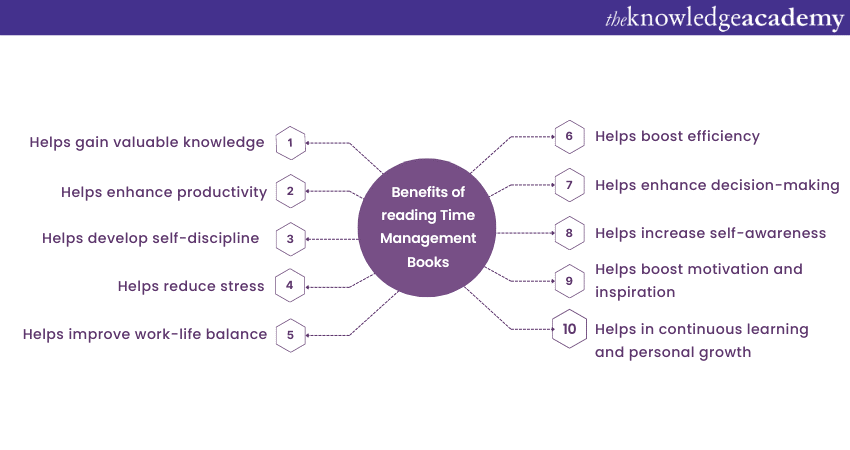
1) Helps Gain Valuable Knowledge: Exposes individuals to a wealth of practical techniques, insightful strategies, and expert advice.
2) Helps Enhance Productivity: Offers proven methods for improving productivity. They also provide valuable insights on prioritisation, goal setting, and task management.
3) Helps Develop Self-discipline: Instructs readers in overcoming procrastination, building self-control, and establishing productive habits.
4) Helps Reduce Stress: Helps individuals organise their responsibilities, set realistic deadlines, and create balanced schedules.
5) Helps Improve Work-life Balance: Emphasises the importance of achieving a healthy work-life balance. By learning effective Time Management techniques, individuals can allocate time for work, personal activities, leisure, and relationships.
6) Helps Boost Efficiency: Offers insights into streamlining workflows, eliminating time-wasting activities, and leveraging productivity tools. By adopting these recommendations, individuals can enhance their efficiency and accomplish tasks in a more streamlined and effective manner.
7) Helps Enhance Decision-making: Helps individuals make informed decisions about how to allocate time and resources. Books on Time Management provide guidance on setting priorities, and making informed choices.
8) Helps Increase Self-awareness: Encourages readers to reflect on their current habits, routines, and time allocation. This introspection promotes self-awareness and allows individuals to identify areas for improvement and make necessary adjustments.
9) Helps Boost Motivation and Inspiration: Share inspiring stories, and examples of successful individuals who have mastered the art of effcient management of time. These stories can ignite motivation and provide a sense of inspiration.
10) Helps in Continuous Learning and Personal Growth: Allows individuals to stay updated on the latest research, trends, and techniques in the field of Time Management.
Criteria for Selecting Top Time Management Books
When selecting the best books on Time Management and productivity, it is essential to consider several criteria to ensure that the chosen books provide valuable insights and practical strategies. Here are some key criteria to consider:
1) Author's Expertise: Evaluate the author's background, qualifications, and expertise in the field of Time Management. Look for authors who have substantial experience, research, or practical knowledge related to effective Time Management practices.
2) Relevance: Assess the relevance of the book's content to your specific needs and goals. Consider whether the book addresses the challenges you face in managing your time and if it offers practical solutions that align with your circumstances.
3) Content Quality: Examine the quality of the book's content. Look for books that provide well-researched information, reliable sources, and evidence-based strategies. Check for clarity, coherence, and logical progression of ideas within the book.
4) Practicality: Consider the book's practicality and applicability to real-life situations. Look for books that offer actionable advice, step-by-step techniques, and practical exercises that readers can implement in their daily lives. Books with clear examples and case studies can also be beneficial.
5) Comprehensive Approach: Assess whether the book covers various aspects of Time Management comprehensively. It should address key areas such as goal setting, prioritisation, task management, overcoming procrastination, and dealing with distractions.
6) Unique Perspective: Look for books that offer a unique perspective or innovative approaches to Time Management. Books that challenge traditional notions or introduce fresh ideas can provide valuable insights and inspire new ways of thinking about Time Management.
7) Reader Reviews and Ratings: Consider reading reviews and ratings from other readers to get an idea of the book's impact and effectiveness. Pay attention to reviews that align with your specific needs and goals.
8) Longevity and Timelessness: Evaluate the book's longevity and timelessness. While newer publications may offer updated techniques and insights, older books that have stood the test of time often signify their enduring value and relevance.
9) Accessibility: Consider the book's accessibility in terms of language, readability, and suitability for your level of understanding. Look for books that are written in a clear, engaging, and easy-to-understand manner, ensuring that the content resonates with you.
10) Impact and Recommendations: Consider recommendations from trusted sources, such as experts in the field, successful professionals, or colleagues who have benefited from the book.
Top 10 Time Management Books
This section will delve deeper into the Top 10 best books on Time Management and productivity that you can read and refer to in order to enhance your Time Management skills.
"The Power of Habit" by Charles Duhigg
Charles Duhigg’s “The Power of Habit’ takes the readers on an exciting exploration of habits and what they do to us. In this book, Duhigg explains scientific concepts and shows how hype and personal stories work in everyday life influencing the population’s behavior and daily practices.
From this ground, it is possible to observe that with the help of growing the knowledge about the mechanisms of habit-building, readers will be able to enhance their Time Management knowledge and skills.
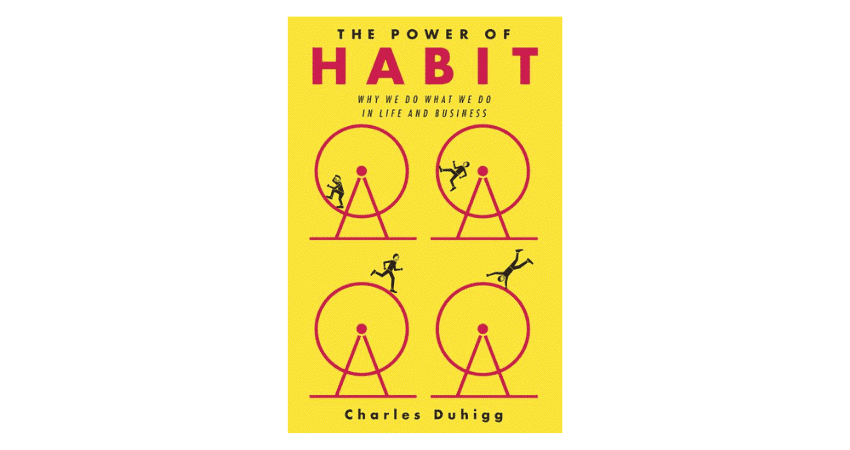
The author uses storytelling and scientific evidence to provide clear and helpful tips on how to break the link between the unfavorable behavior and the specific reward and replace it with one that is beneficial in the context of a person’s plans and values.
The authors explain that, when the readers know what cues, routines, and rewards lead to the habits, they can then gain control of time and become more productive.
"Atomic Habits” by James Clear
James Clear’s Atomic Habits are based on the idea of cultivation of small changes that in turn lead to revolutionary improvements. Clear also describes how minute issues that we develop and continue to embrace can actually cause a lot of havoc on the how we spend our time and how efficient we are in general.
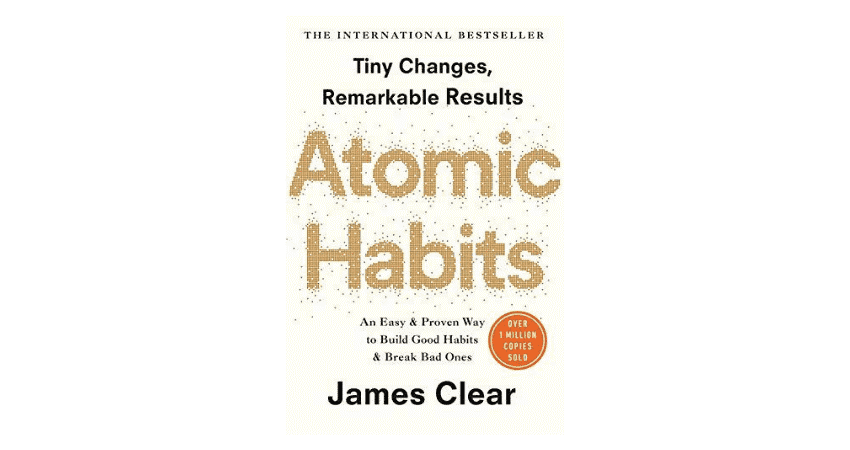
Using clear and realistic steps, Clear shows ways to build good behaviors and encouraging techniques to follow through the desired courses to reach a successful, productive life. This book acts as a guideline where Clear will take the readers through the whole process of making small changes which would significantly enhance one’s Time Management aptitude.
"Deep Work” by Cal Newport
The book, Deep Work, by Cal Newport, dissects the idea of deep work, a focused and uninterrupted work process on work that demands high cognitive intelligence. Newport describes and gives emphasis on the problems created by the interruptions and switching between tasks in the modern neoliberal world.
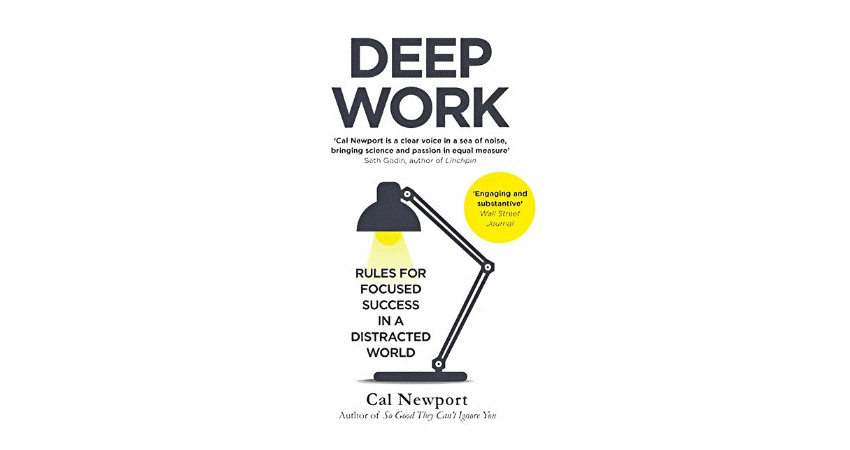
In an age of constant interruptions, Newport looks at the role of retention of flow in work. He discusses deep work as well as possible schedules for working in the existing environment and avoiding interruptions. It means that by applying the deep work principles readers shall be in a position to concentrate, work harder and smarter.
"Eat That Frog!” by Brian Tracy
Those who are familiar with the book must’ve heard of Brian Tracy’s “Eat That Frog!” contains helpful tips on how to avoid putting off tasks till the last minute and how to prioritise. The actual title of the book signifies eating a ‘frog’ which metaphorically means doing the biggest and hardest thing (the ‘frog’) first, in the morning.
Organisation and time management tactics, along with lesson plan and course expectations, are outlined here by Tracy.
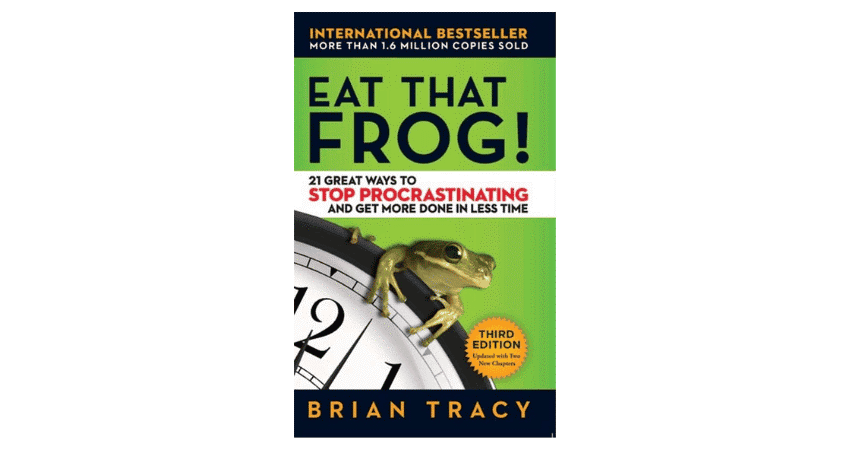
Tracy provides useful tips on Time Management including how to avoid time wastage and learn how to work on what is important. According to the strategies mentioned above, readers will be able to approach their goals in a positive manner and achieve much in their projects.
"Getting Things Done” by David Allen
David Allen's "Getting Things Done" presents a comprehensive system for organising tasks and achieving stress-free productivity. Allen introduces the "GTD" methodology, emphasising the importance of capturing and clarifying all commitments, organising them in a trusted system, and regularly reviewing and executing tasks.
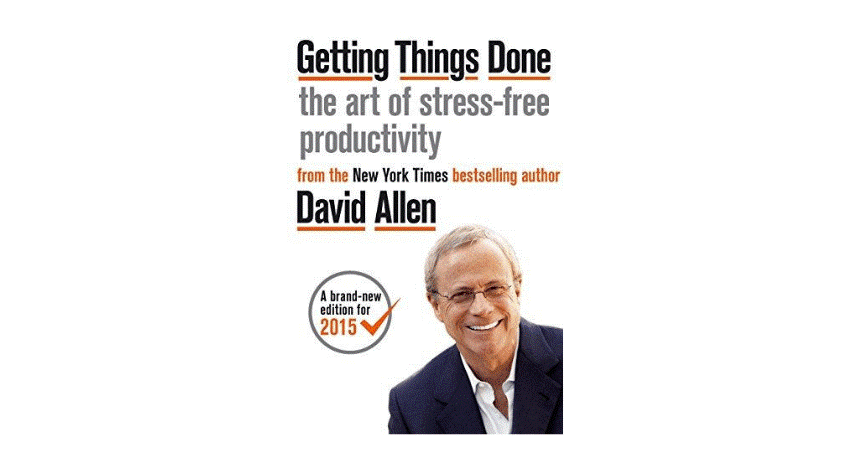
He offers practical techniques for managing emails, setting priorities, and maintaining focus amidst a busy schedule. Allen's book provides readers with actionable advice and strategies for decluttering their minds, gaining a sense of control, and effectively managing their time and responsibilities.
Invest in your well-being by effectively managing stress levels with our Stress Management Course, Signup now!
"The 7 Habits of Highly Effective People” by Stephen R. Covey
Stephen R. Covey's "The 7 Habits of Highly Effective People" is a timeless classic that explores principles for personal and professional effectiveness. Covey's holistic approach emphasises the significance of aligning goals with values, fostering proactive habits, and prioritising tasks.
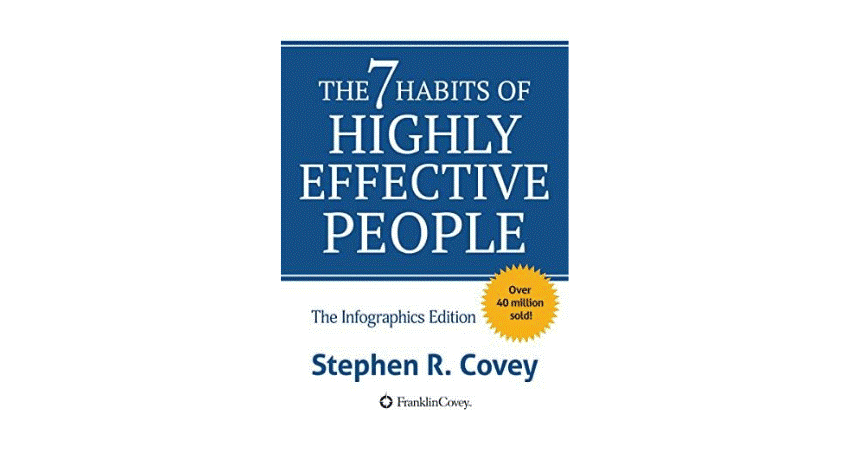
Covey outlines seven habits that readers can integrate into their lives, including being proactive, beginning with the end in mind, and putting first things first. Covey's book offers practical guidance for managing time, improving relationships, and achieving greater effectiveness in all areas of life.
The One Thing” by Gary Keller and Jay Papasan
In this book, Gary Keller and Jay Papasan emphasise the power of focus and singularity in achieving exceptional results. "The One Thing” advocates for identifying the most important task (the "one thing") that, when accomplished, makes everything else easier or unnecessary.
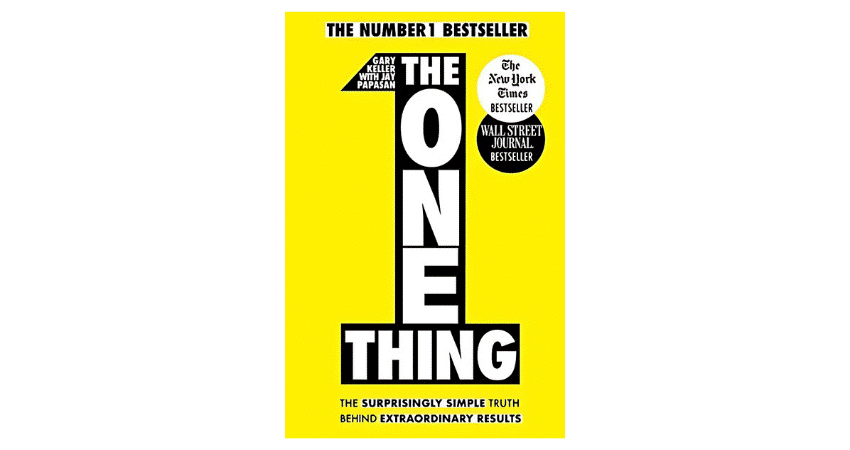
Keller and Papasan provide practical strategies for setting priorities, eliminating distractions, and creating a supportive environment. By dedicating time and energy to the most impactful activities, readers can optimise their management of time, increase productivity, and achieve extraordinary outcomes.
"Make Time” by Jake Knapp and John Zeratsky
Jake Knapp and John Zeratsky's "Make Time" offers practical guidance for creating a daily routine that optimises productivity and satisfaction. The book encourages readers to make deliberate choices about how they spend their time, focusing on activities that align with their values and goals.
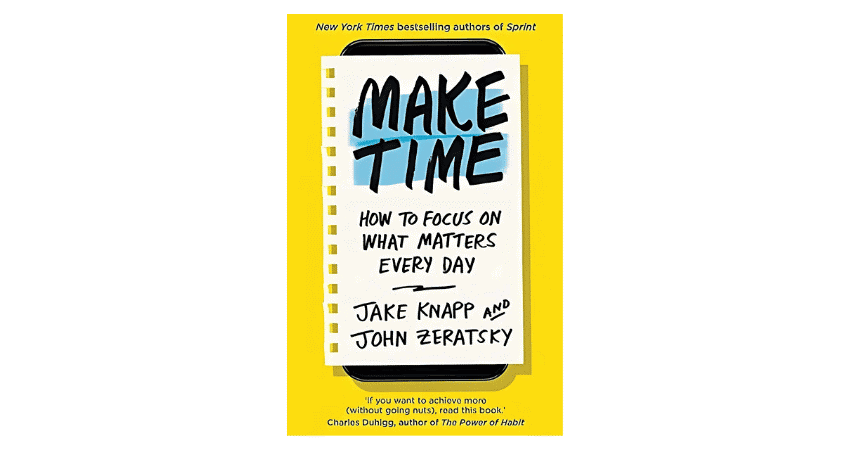
Knapp and Zeratsky provide actionable strategies for eliminating distractions, establishing boundaries, and carving out time for meaningful pursuits. Through personal anecdotes and engaging exercises, the authors empower readers to take control of their time, make intentional decisions, and lead more fulfilling lives.
"Indistractable" by Nir Eyal
Nir Eyal's "Indistractable" addresses the modern challenge of overcoming distractions and regaining control of our time and attention. Eyal examines the root causes of distraction and provides practical techniques for managing internal and external triggers.
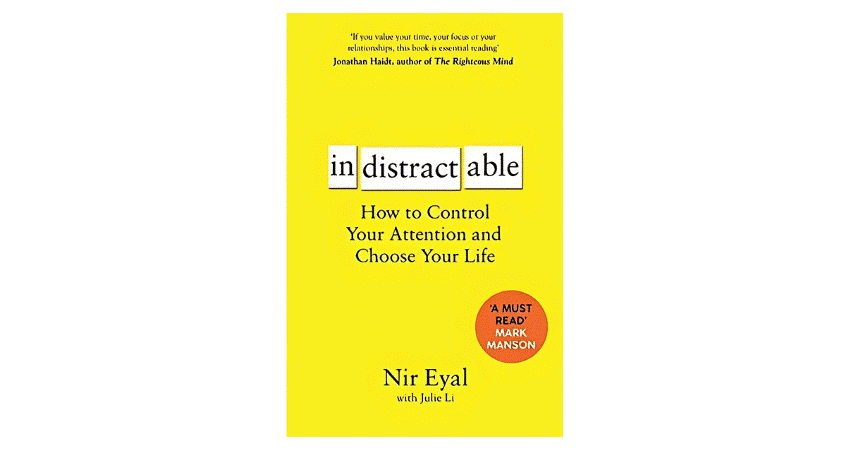
Eyal provides actionable strategies for improving focus, boosting productivity, and achieving better work-life balance. Eyal's book equips readers with the tools and mindset necessary to navigate today's digital distractions and stay focused on what truly matters.
By adopting Eyal's strategies, readers can cultivate a focused mindset, avoid common productivity pitfalls, and reclaim their time for meaningful and fulfilling pursuits.
"The Productivity Project" by Chris Bailey
Chris Bailey's "The Productivity Project" chronicles the author's year-long experiment in optimising productivity and management of time. Bailey explores various approaches to productivity and shares valuable insights on topics such as focus, energy management, and goal setting.
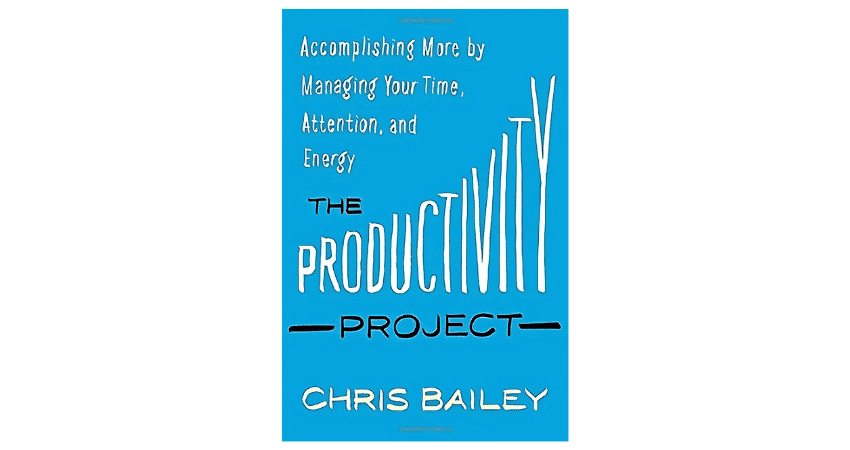
Bailey shares research-based findings, personal experiences, and practical techniques to help readers enhance their productivity and achieve their goals. Bailey's book offers valuable insights into understanding one's individual productivity style and making intentional choices to make the most of one's time and abilities.
Conclusion
All in all, mastering the management of time is an essential skill that can significantly impact our lives. By delving into the insights and strategies provided by books on managing time, individuals gain valuable knowledge, enhance productivity, and develop essential self-discipline. Investing time in reading and implementing the principles shared in Time Management Books can lead to a more fulfilling and successful life, where tasks are accomplished with efficiency and purpose.
Unlock your true potential with our Personal Development Training Courses. Sign up now and embark on a transformative journey!
Frequently Asked Questions

The five essential components of effective time management are: Planning to prioritise tasks, Organising Resources efficiently, Setting Goals to maintain focus on objectives, Tracking Time to identify and eliminate inefficiencies, and Being Flexible to adapt to unexpected changes while remaining productive.

The four P's of time management are Prioritise, concentrating on high-value tasks; Plan, developing a roadmap for your goals; Perform, taking disciplined and focused action; and Perfect, continuously refining your strategies to optimise productivity and adapt to changing needs.

The Knowledge Academy takes global learning to new heights, offering over 30,000 online courses across 490+ locations in 220 countries. This expansive reach ensures accessibility and convenience for learners worldwide.
Alongside our diverse Online Course Catalogue, encompassing 19 major categories, we go the extra mile by providing a plethora of free educational Online Resources like News updates, Blogs, videos, webinars, and interview questions. Tailoring learning experiences further, professionals can maximise value with customisable Course Bundles of TKA.

The Knowledge Academy’s Knowledge Pass, a prepaid voucher, adds another layer of flexibility, allowing course bookings over a 12-month period. Join us on a journey where education knows no bounds.

The Knowledge Academy offers various Personal Development Courses, including the Time Management Training, Creative Writing Course and the Attention Management Training. These courses cater to different skill levels, providing comprehensive insights into Critical Reading.
Our Business Skills Blogs cover a range of topics related to Earned Value Management, offering valuable resources, best practices, and industry insights. Whether you are a beginner or looking to advance your Project Management skills, The Knowledge Academy's diverse courses and informative blogs have got you covered.
Upcoming Accounting and Finance Resources Batches & Dates
Date
 Time Management Training
Time Management Training
Fri 10th Jan 2025
Fri 14th Mar 2025
Fri 9th May 2025
Fri 11th Jul 2025
Fri 12th Sep 2025
Fri 14th Nov 2025







 Top Rated Course
Top Rated Course



 If you wish to make any changes to your course, please
If you wish to make any changes to your course, please


